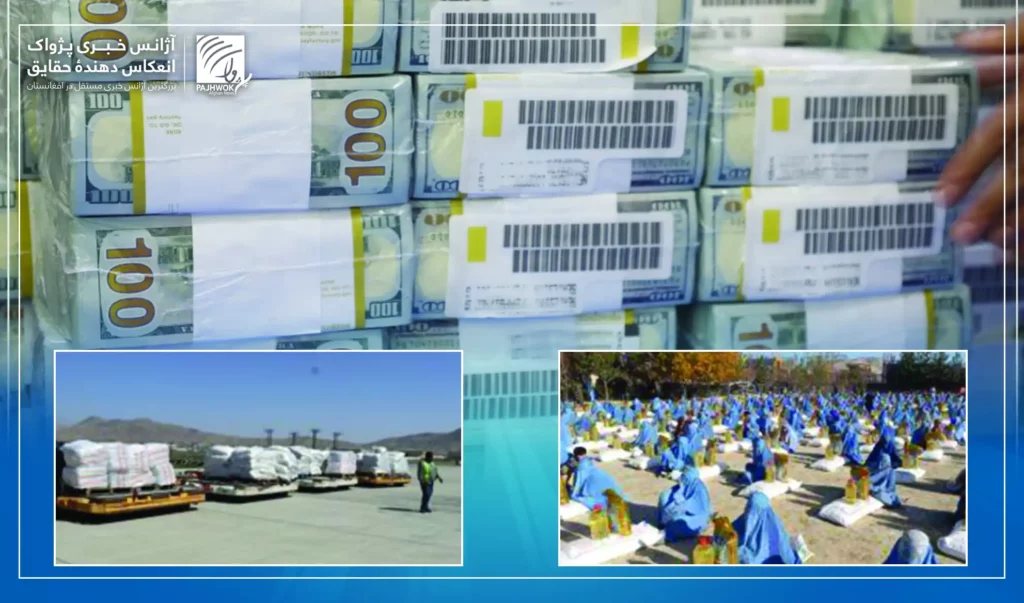KABUL (Pajhwok): Analysts say the continued international community’s aid has been effective in reducing problems, otherwise Afghanistan would have faced many challenges economically.
The Islamic Emirate returned to power on August 15, 2021, replacing the Islamic Republic of Afghanistan.
After the regime change, the United States slapped sanctions on the new caretaker government and froze nearly $9.5 billion in assets belonging to Da Afghanistan Bank (central bank), plunging the country into economic turmoil.
According to a Pajhwok report, Afghanistan received more than $1.5 billion in humanitarian aid from the international community during the past 12 months.
Besides the aid, hundreds and thousands of poor families are daily distributed essential goods and other assistance in different regions of the country.
Economic affairs expert Qais Muhammadi told Pajhwok Afghan News the Afghans had long been suffering from poverty and relied on foreign aid, which had been effective in mitigating problems.
In the initial days of the new government, he said, people became unemployed, domestic production, trade and other businesses faced stagnation and the rate of dollar and prices of food items also increased.
However, Afghanistan regained stability and its economic situation somehow improved when the international community began providing cash and humanitarian aid.
Muhammadi believed in the absence of such aid, Afghanistan would have faced increased unemployment and bad economic situation. “People are leaving for Iran and other countries in search of job, this level would have increased several times and the people would have cried out inside the country and then the government would also face instability….eventually it could have led to civil war, social instability and violence”.
He said the continuation of the international community’s assistance, in any form, was beneficial for the Afghans and the economy of Afghanistan.
“However, if the aid does not reach the deserving and needy people, poverty will not alleviate in the country,” he remarked, calling on the government to ensure the aid was transparently delivered to the needy.
Muhammadi also asked the government to increase domestic production and exports and create work opportunities for the people in order to help them become self-reliant.
He said economic stability needed an economic plan and without an economic program, it was not possible to attain economic stability.
Kabul University’s Faculty of Economics teacher Zakria Haidari said international humanitarian aid was very effective for countries like Afghanistan.
He added currently 95 percent of people in Afghanistan lived in penury and in the absence of international aid, the Afghans would have been lacking life’s essentials and there would have been deaths due to poverty.
Haidari also said humanitarian aid was for the people and the government should not interfere in it and distribute it to the people transparently.
He said the international community might increase the aid if it was distributed fairly and some donors could stop giving aid in case of any interference.
Afghanistan caretaker government officials have repeatedly assured the international community and other aid agencies a transparent distribution of the aid to destitute people.
Rahimullah, 15, a resident of the 9th security district of Kabul city, said he had received the aid. He said he would have faced many problems if he had not received the assistance.
“My father lost his life a year before the regime change. I was concerned about my family, my orphaned brothers and sisters that they would face many problems, but thankfully I received the aid and our life goes on.”
ma







GET IN TOUCH
NEWSLETTER
SUGGEST A STORY
PAJHWOK MOBILE APP